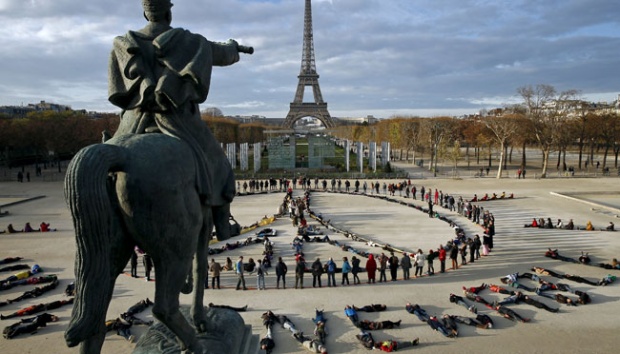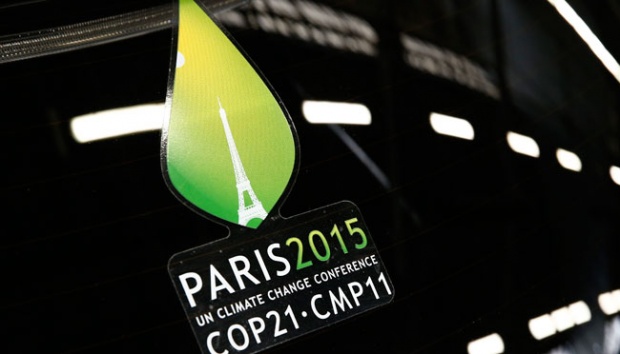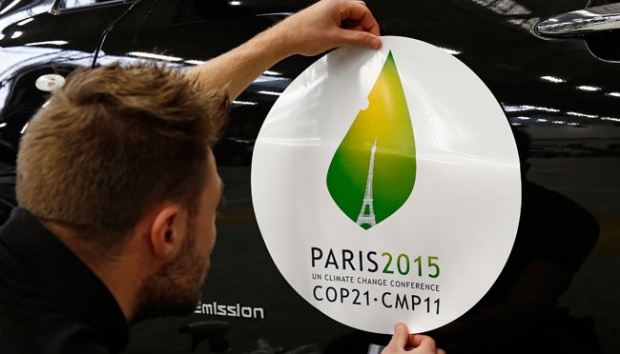New Draft of Climate Accord Leaves Big Issues Unresolved
10 December 2015 11:20 WIB

TEMPO.CO, Le Bourget- With just two days left to reach a deal, negotiators at the world climate talks released a new draft Wednesday that drops the most radical ideas — including an international tribunal to punish polluters — but leaves major issues unresolved, such as who should pay to help the most vulnerable nations cope with global warming.
U.S. Secretary of State John Kerry challenged diplomats to reach agreement by Friday's deadline, promising American funding for low-lying island nations and other countries hit hardest by the rising seas and extreme weather that scientists attribute to man-made emissions of carbon dioxide and other greenhouse gases.
"Our aim can be nothing less than a steady transformation of the global economy," Kerry said.
The new draft released by the U.N. climate agency is 29 pages, down from a 43-page version issued Saturday. There are about 100 places where there are decisions still to be made, including multiple options left in brackets, or blank spaces.
"We have never been this close to a climate change agreement," said Maldives Environment Minister Thoriq Ibrahim, chairman of an alliance of island nations. "It's now up to us ministers to show the leadership needed to make hard decisions that put the interests of people and the planet ahead of shortsighted politics."
Ministers from more than 190 countries are trying to craft the first climate accord asking all nations to reduce or slow their emissions. The previous agreement, the 1997 Kyoto Protocol, required only rich countries to do so.
Most man-made emissions come from the burning of oil, coal and gas — fossil fuels that meet about 80 percent of global energy demand. Replacing them with renewable sources like wind and solar power requires big investments, which poor countries say they can't afford without help.
A previous draft suggested that intellectual property rights to clean technology be removed so that developing countries such as India could get access to it more easily. That was deleted from the latest draft.
A call for an International Tribunal of Climate Justice to punish rich countries that fail to live up to their commitments was also dropped, as were references to emissions from aviation and shipping.
But the document doesn't settle the sensitive question of whether advanced developing countries such as China and oil-rich Arab nations should join industrialized countries in providing financial aid.
It also doesn't spell out the long-term goal of the accord — whether it is to remove carbon emissions from the economy altogether or just reduce them.
Nor does it settle whether governments will aim to limit the global temperature rise to 1.5 degrees C (2.7 degrees F) above pre-industrial times or closer to 2 degrees C (3.6 degrees F).
"It is not bold enough," European Climate Commissioner Miguel Arias Canete said of the draft.
In an attempt to bridge the rich-poor divide that has often stalled progress in the U.N. talks, the foreign minister of the Marshall Islands, Tony de Brum, announced a "high-ambition coalition" including small island nations, the European Union and the United States, among others.
It was not immediately clear whether the move would yield a breakthrough in the talks. At a plenary session in the evening, several developing countries, including India and Malaysia, accused wealthy nations of not living up to their commitments to provide climate aid for the poor.
Earlier, Kerry announced that the U.S. will double its contribution to helping vulnerable nations adapt to the effects of climate change, increasing grant money to $860 million from $430 million by 2020. Developing nations have been demanding more money as they struggle with an increase in extreme weather events such as hurricanes, heavy rains and floods.
The money will be part of an existing promise by wealthy countries to jointly mobilize $100 billion a year by 2020. It will help fund domestic weather services and tracking systems to better assist poorer nations in forecasting and coping with extreme weather.
Kerry has made combating climate change a priority since he became secretary of state.
"Make no mistake: If, as a global community, we refuse to rise to this challenge — if we continue to allow calculated obstruction to derail the urgency of this moment — we will be liable for a collective moral failure of historic consequence," he said. "We are not just responsible to ourselves — we are responsible to the future."
REUTERS





















